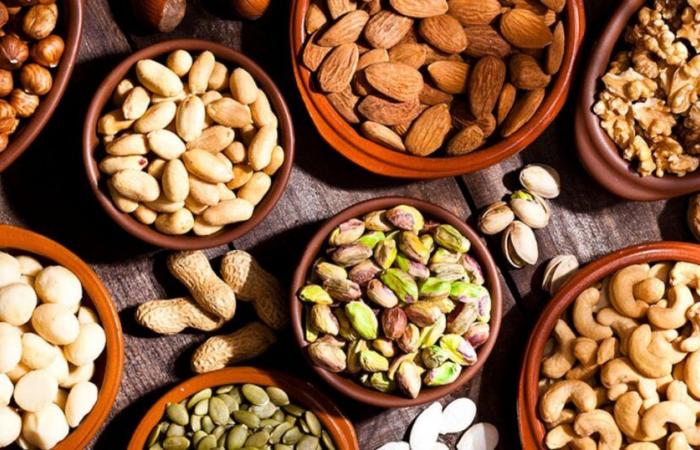Regular consumption of Nutsseeds and corn offers numerous health benefits. These foods are rich in healthy fats, fiber, plant proteins, vitamins (such as E and complex b) and minerals such as magnesium, zinc and iron.
Studies showed that including nuts and seeds in diet can reduce the risk of cardiovascular diseases, improve glycemic control in people with type 2 diabetes, and favor brain and digestive health.
However, there are certain cases in which the consumption of these foods must be moderated or avoid. People with nuts to nuts or seeds should avoid strictly, since they can cause serious allergic reactions. In addition, due to its high caloric content, excessive consumption of nuts or seeds can contribute to weight gain if it is not controlled.
Dry fruits and diverticulitis: A study rules out the risk in women
So far in the medical community there was doubt if its dietary intake increases the risk of diverticulitis in women.
Now, a prospective study of the University of North Carolina, the United States, examined its intake and found no correlation between the consumption of nuts, seeds and corn and the risk of diverticulitis. While they point out that a healthy diet reduces the risk of diverticulitis.
-The results are published in the magazine Annals of Internal Medicine And the authors say it is the first study that examines whether certain foods and food intake affect diverticulitis in women.
The researchers studied data from women from 35 to 75 years old who responded to food frequency questionnaires about diverticulitis and had no history of intestinal inflammatory disease, cancer or diverticulitis.
The women registered for the first time between 2003 and 2009, with follow -up every two or three years. This study included women who completed a fifth monitoring questionnaire managed between 2020 and 2022. The researchers also used the data to calculate the correlation between the risk of diverticulitis and four dietary indices: the dietary approaches diet to stop hypertension (DASH), the healthy eating index (HEI) of 2015, the alternative healthy eating index (AHEI) Alternative Mediterranean (AMED).
In their observation, experts did not find association between the dietary intake of nuts, seeds and corn, nor the intake of fresh fruits with seeds, and diverticulitis. In addition, the four healthy diet patterns studied were associated with a lower risk of incident diverticulitis.
Women with diverticulitis were more likely to be greater, smokers or exfusters, excessive consumer of alcohol and overweight. These results are significant, since it is presumed that the dietary intake of suspended particles, such as nuts, seeds and corn, is a trigger for diverticulitis.






